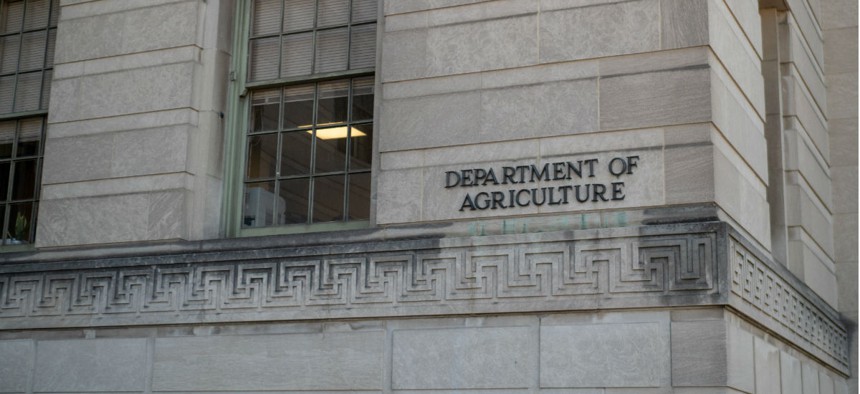
By David Tran Photo / Shutterstock.com
Agriculture Secretary’s Relocation Plan Draws Fire From 1,100 Researchers
Former agency officials join in letter to lawmakers warning of threat to scientific integrity.
A week after Agriculture Secretary Sonny Perdue defended his plan to move two major statistical offices outside of Washington, D.C., 1,100 scientists and economists joined in a letter to key congressional committee heads opposing the plan as a threat to research objectivity.
“As scientists and researchers, we are a part of the USDA's constituency and have a vested interest in the continued success of the agriculture research conducted through the USDA,” read the letter critiquing the plan announced in August to relocate the Economic Research Service and the National Institute of Food and Agriculture.
“However, we believe the proposed changes would have both immediate and long-term negative impacts on the USDA's science-based mission and consequently on those who the USDA is meant to serve,” said the letter signed by numerous former department officials.
Complaining that the department had provided little evidence for the claimed cost savings and recruiting advantages, the signers argued that the moves to a still-unselected location would “hamper the ability of the agency to raise the profile of agricultural research, extension and education, by preventing collaboration with a broad base of stakeholders and federal agencies, many of whom are based in the Capitol area. The interdisciplinary research and collaboration that NIFA currently engages in with the Department of Defense; the National Science Foundation; the National Institutes of Health; the Office of Science, Technology and Policy; and myriad other entities in Washington, D.C, would also be threatened or even stopped, negatively impacting stakeholders across the country,” said the letter coordinated by the Union of Concerned Scientists.
Perdue justified the planned move affecting some 700 employees as a way to save on payroll and facilities costs while easing recruitment of job candidates who live nearer to land-grant universities. He asserted that his department has the authority to make the moves, stressing the importance of placing these “important USDA resources closer to stakeholders who live and work outside the D.C. area” while also allowing “more employees to be retained in the long run, even in the face of tightening budgets.”
The scientists’ group quoted several individuals in releasing the letter asking Congress to delay and block the moves.
“As a former national program leader at NIFA and a farmer, I have firsthand experience of how the USDA serves customers,” said Diana Jerkins, research director at the Organic Farming Research Foundation. “Stakeholders travel to D.C .to meet with NIFA, ERS and other government officials including members of Congress, all in a single trip. If NIFA and ERS are moved, it will make interaction with these agencies more challenging. Additionally, the ability of these research agencies to work on joint programs, collaborate with other researchers and government officials and serve the customers of USDA—it would be greatly diminished.”
Ricardo Salvador, senior scientist and director of the Food and Environment Program at the Union of Concerned Scientists, added a note about the plan’s provision to restore ERS to its previous place in the Office of the Secretary. “The mission of ERS is to generate research free from the ideological positions of a particular administration,” he said. “Placing ERS in the secretary’s office means that ‘inconvenient’ data can be more readily suppressed or manipulated.”
The Agriculture press office did not respond to requests for comment by publication time.
NEXT STORY: A Setback for Trump's Plan to Slash Public Lands







